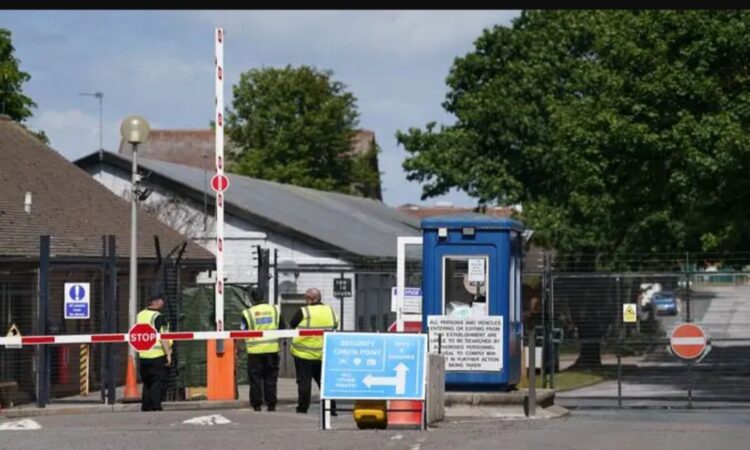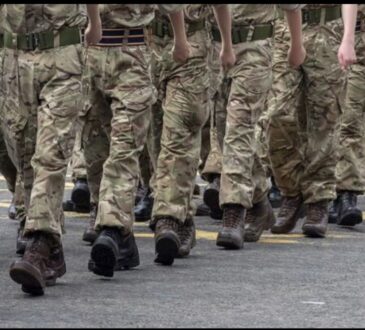Illegal Migrants asking ‘where is the hotel?’ seconds after arriving in UK as chaos continues

A former RAF base in Manston, Kent, has been turned into the UK’s largest asylum processing centre, and whistleblowers working there are now speaking out about the chaos they face.
Staff say they’re overwhelmed and unable to do proper checks on the thousands of people arriving, especially on busy days when hundreds cross the Channel and are brought in by bus.
The centre was only meant to hold up to 1,000 people at a time, and for no longer than 24 hours. But in reality, it has held over 4,000 people at once, with some staying for more than a month. Workers are exhausted and say they are put under pressure to keep up, even when it’s impossible to manage the numbers properly.
One young male worker explained that many of the migrants arrive expecting hotel accommodation right away. He said the first thing they ask is about where they’ll be staying, assuming they’ll get a free hotel room. Staff are not allowed to answer these questions directly. Instead, they’re told to distract the migrants by offering them snacks like crisps or bottles of water. According to him, the belief that they will be put up in hotels is one of the main reasons many choose the UK over other countries. Workers feel like they’re not being honest with the public about what’s really happening.
Not long ago, staff were asked to work overtime because more than 1,000 migrants arrived in one day. The centre wasn’t built for this kind of volume, and employees say it’s now running beyond capacity. This creates huge problems when it comes to checking people’s identities, safety, and the truth of their asylum claims. One worker admitted that many of the stories migrants tell seem rehearsed, like they’re following a script. For example, many Afghans say they’re escaping the Taliban, and many Africans claim to be gay and say their lives are in danger because of their sexuality. Staff are required to write these stories into the records as if they are true, even if they suspect they are made up.
Some migrants even give the same fake birth date, such as January 1, because they don’t have official documents. Despite these obvious signs that the information might not be real, workers say they can’t challenge or verify the claims. Since Brexit, the UK no longer has access to the European fingerprint database, which used to help identify migrants and check if they had been in trouble or deported from other EU countries. Now, when someone arrives in Britain, authorities have to start from scratch with no background information. Workers say this means people who may have been criminals or were kicked out of other countries could be let into the UK with no questions asked.
One staff member pointed out the danger of this, asking why someone who is seen as a possible risk to staff inside the centre is not seen as a risk to the wider British public once they are moved to other parts of the country. They said many migrants are quickly sent across the UK before proper checks can be done, and the staff are left feeling helpless and worried.
This has all come to light at a time when the government is under pressure to fix the broken asylum system. Earlier this month, Chancellor Rachel Reeves announced that more money would go to the Home Office to help reduce the huge backlog of asylum cases, hold more appeal hearings, and remove people who don’t have the right to stay in the country. As part of this plan, the government also promised to stop using hotels to house migrants by the end of the current parliament. But for many working on the frontline, these promises feel too little, too late, as they continue to deal with overwhelming numbers and a system that, in their words, is being abused and manipulated every day.




